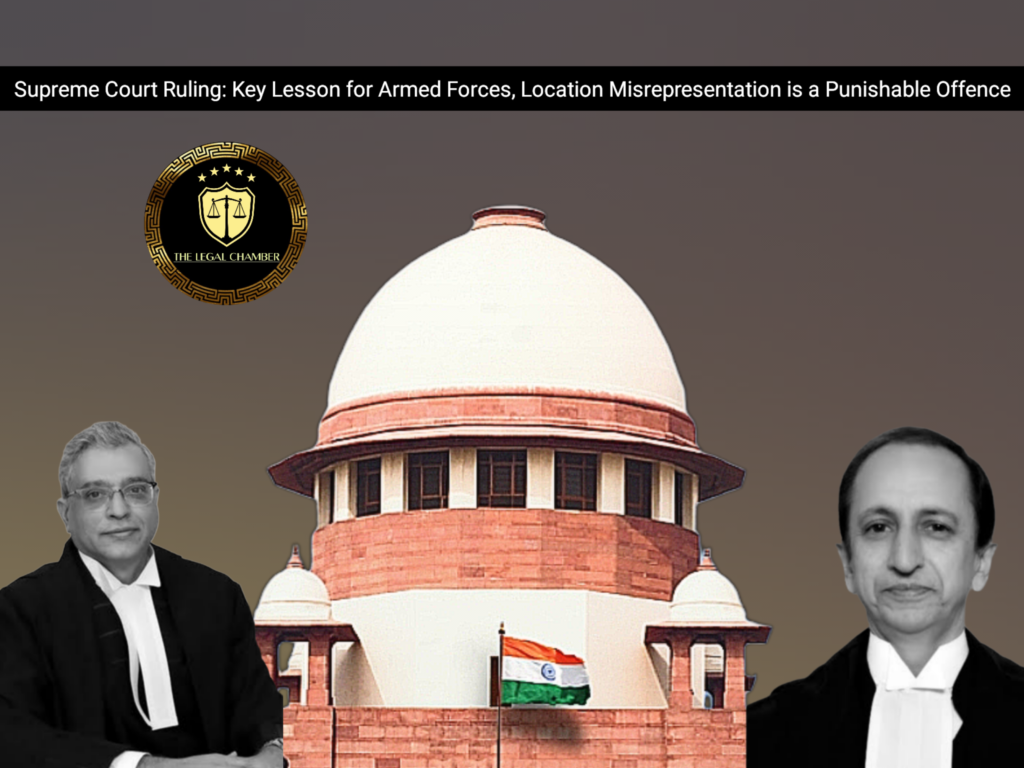
The Supreme Court declined to interfere with the penalty imposed by the disciplinary authority, upholding the High Court’s decision. The Court affirmed that misconduct, proven on the preponderance of probabilities and bringing disrepute to a disciplined force, warrants a commensurate penalty. It found no grounds for intervention under Article 136 of the Constitution.
Facts Of The Case:
The appellant, Constable Amar Singh, was serving with the Central Industrial Security Force (CISF) at the Mallaram Camp. On August 27, 1995, he was granted a two-hour out-pass to visit a hospital. Instead of doing so, he went to a residential colony located approximately 12 kilometres from the camp to enquire about quarters allotted to another constable. His presence and actions there agitated the local civilians, who subsequently detained him. The situation required the intervention of his superior officers, who gave an assurance that departmental action would be taken against the appellant, following which he was released.Based on this incident, disciplinary proceedings were initiated against him. The charges alleged that he left the camp without permission and trespassed into family quarters, engaging in conduct unbecoming of a force member that brought disrepute to the CISF. The Inquiry Officer held the charges proved. The Disciplinary Authority initially imposed a penalty of reduction of pay to the minimum for three years. The Appellate Authority modified this to a reduction in pay by one stage for two years, with a withholding of increments. The Delhi High Court and subsequently the Supreme Court upheld the modified penalty, finding the second charge of misconduct substantiated on the preponderance of probabilities.
Procedural History:
The procedural history of this case began with disciplinary proceedings initiated by the Central Industrial Security Force (CISF) against the appellant, Constable Amar Singh. The Inquiry Officer, after an inquiry, submitted a report dated December 16, 1997, holding both charges against the appellant as proved. The Disciplinary Authority, the Commandant, then imposed the penalty of reduction of the appellant’s pay to the minimum of the pay-scale for three years on January 17, 1998. The appellant preferred an appeal, and the Appellate Authority, on April 23, 1998, agreed with the findings but modified the penalty to a reduction of pay by one stage for two years. The appellant then challenged this order before the Delhi High Court via a writ petition. The Division Bench of the High Court, after a detailed consideration, partly allowed the challenge by holding the first charge as not proved but upheld the second charge and the modified penalty, dismissing the writ petition. The appellant then filed the present civil appeal before the Supreme Court of India, which, upon hearing the parties, dismissed the appeal and affirmed the impugned judgment of the High Court.\
READ ALSO:No Relief for Constable: Supreme Court Reinstates Dismissal Over Unauthorized Absences
Court Observation:
Final Decision & Judgement:
Case Details:
Case Title: Const. Amar Singh vs Union of India & Ors. Citation: 2025 INSC 1055 Appeal Number: Civil Appeal No. 2986 of 2012 Date of Judgement: August 29, 2025 Judges/Justice Name: Justice Atul S. Chandurkar and Justice Pamidighantam Sri Narasimha